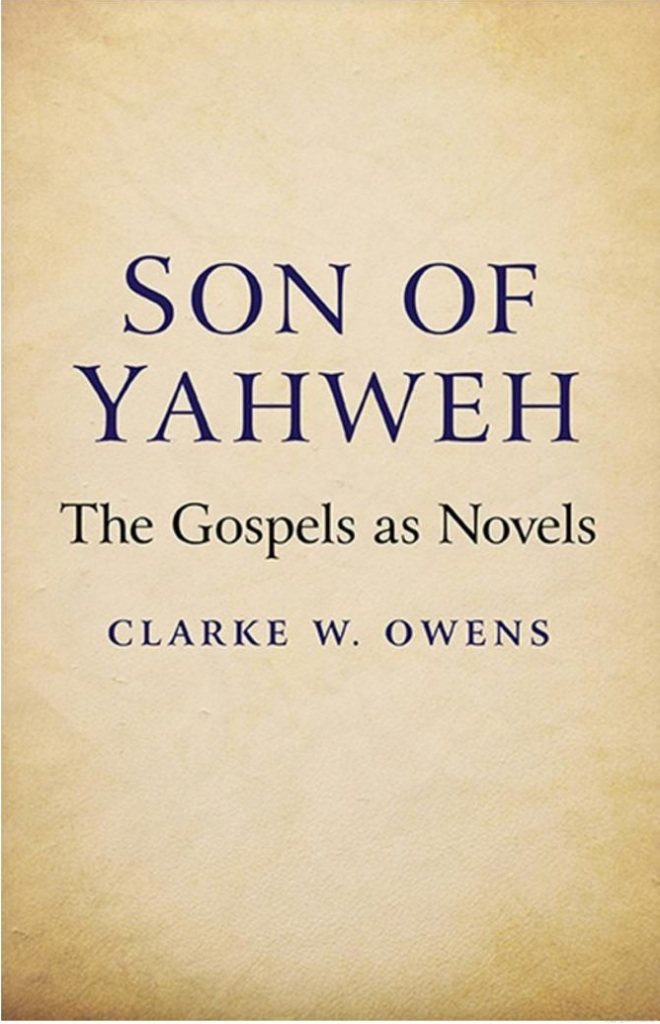 Time to return to one of my favourite books at the moment, Son of Yahweh: The Gospels as Novels by Clarke W. Owens. I have posted on this book five times before but have not yet got to its most interesting ideas. By scholarly training he knows how to read a text. That means he knows how to understand what sort of literature a text is. And that means he can be a most valuable asset for a historian who wants to know what sorts of documents the New Testament Gospels and Acts are. After all, how can a historian know how to interpret a primary source if he does not understand what sort of document it is? How can a historian know what sorts of questions a document is capable of answering if she does not understand its nature?
Time to return to one of my favourite books at the moment, Son of Yahweh: The Gospels as Novels by Clarke W. Owens. I have posted on this book five times before but have not yet got to its most interesting ideas. By scholarly training he knows how to read a text. That means he knows how to understand what sort of literature a text is. And that means he can be a most valuable asset for a historian who wants to know what sorts of documents the New Testament Gospels and Acts are. After all, how can a historian know how to interpret a primary source if he does not understand what sort of document it is? How can a historian know what sorts of questions a document is capable of answering if she does not understand its nature?
The trouble with most analysis of the Gospels by those who use them as primary materials for reconstructing Christianity’s origins is that it to a significant extent depends upon interpreting the nature of the Gospels as “Bible books”.
In literary-critical studies, definition of the text is an obvious first step, but critics seldom spend much time on it, because in most cases the text is readily defined.
When we (whether literary critics, students, interested readers, historians) pick up a piece of literature that we wish to learn about and understand more deeply, we may well first ask, “What is this work?”
The answer to that question is nearly always quickly understood. The answer is simply a matter of historical record. We identify and understand a work by both its form and its place in history. If we pick up Chaucer’s Canterbury Tales, or Shakespeare’s Julius Caesar, or Twain’s The Adventures of Huckleberry Finn, we know we are studying a discrete work, something clearly understood by author and audience alike to be a work distinct from any other work. If we did not know the author of a work we would still be able to define the work according to its form and understand that it has been composed at a particular time and place in history.
The historical context of composition is important for understanding how and why the work came to be composed the way it is.
Owens points out that we (scholars included) all too often bring in addition an entirely different set of perspectives to books in the Bible. He writes:
I can think of no examples [outside the Bible’s books] in which the definition of a text would include works by different authors who were not by their own intention co-authors of a given work.
In the previous post we saw the two ways the Gospels are widely interpreted as literature. Jack Miles and John Meier were representative. Continue reading “Extracting the Gospels From the Bible”
